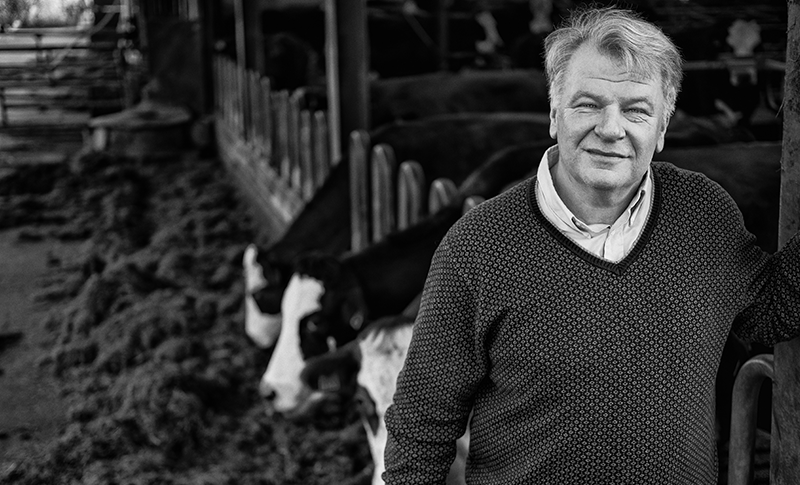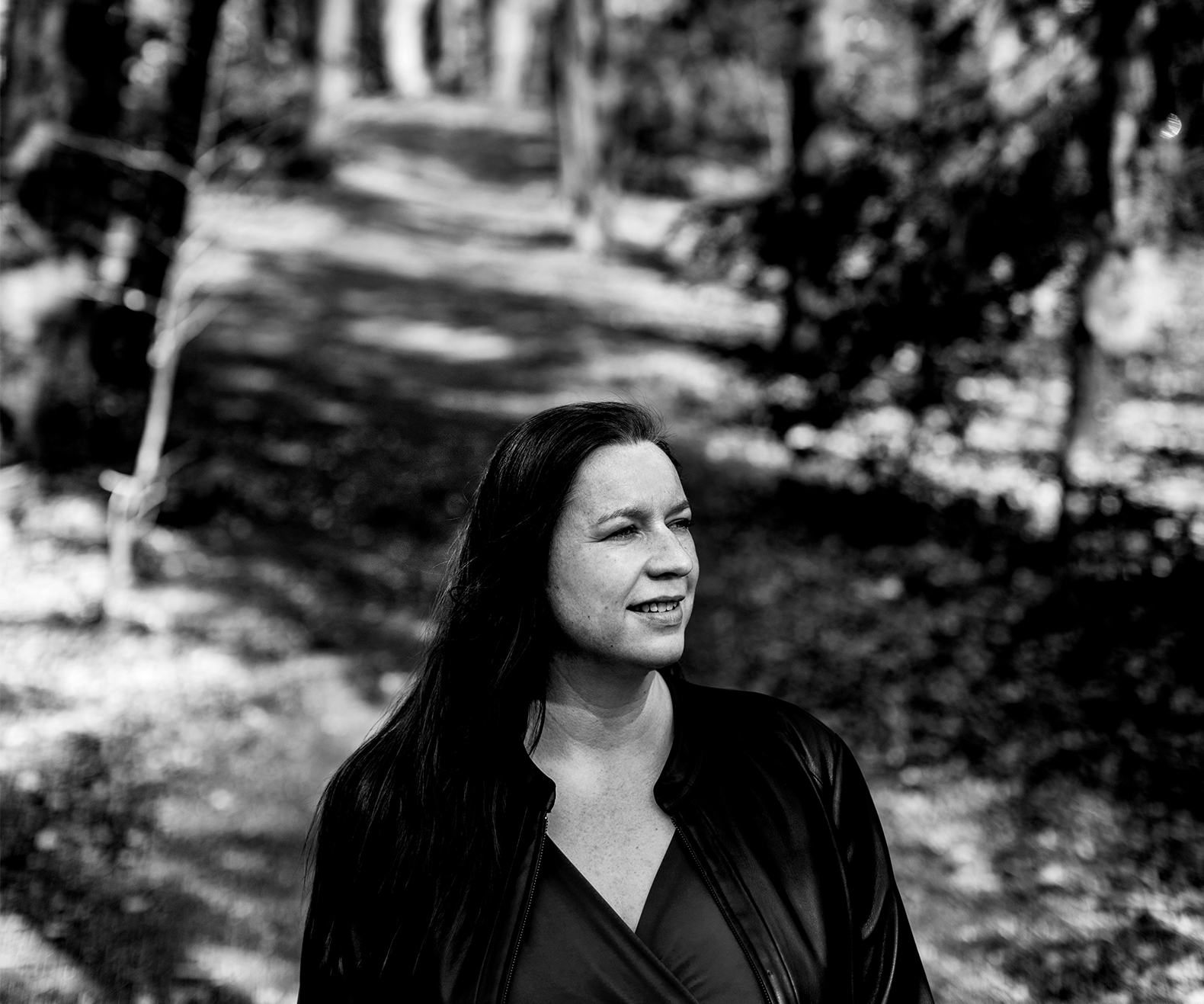How acceptable is it to dehorn cows? Are mega-barns ‘normal’? Animal ethics and livestock farming can stir up strong feelings. Now personal professor of Ethics in Life Sciences Bart Gremmen has written a book on the subject. ‘It is hard to resolve impasses without an understanding of the underlying principles.’
About five years ago, Gremmen dedicated his inaugural address as personal professor to the ethics of livestock farming systems. Now he has published a book entitled Dierethiek & veehouderij (Animal Ethics & Livestock Farming), in which he unpacks the question of how animals can be kept as a source of food in an ethically acceptable way ‑ including the inevitable dilemmas involved, and with the help of lots of examples. From the fledgling farm love affair that ran aground on the hard fact that bulls are killed for economic reasons (for fans: Olke and Alberdien in the Dutch reality show Farmer Wants a Wife) to the endless casuistry about the ‘unusable’ male chicks in the poultry industry.
The timing of his book has a lot to do with what he sees happening both in society and at his lectures, says Gremmen. ‘Despite the public debate, some people have a more or less blind faith that Dutch livestock farming is doing pretty well. Particularly those from a farming background are quick to experience strong criticism or radical proposals as absurd. And yet of course there are some big question marks hanging over the sector. Ethical reflection is much needed in livestock farming.’
In the book, you meticulously deconstruct the ethical principles underlying the divergent views on livestock farming. Does understanding them help us to understand each other better and avoid polarization?
‘That’s the idea, yes. Animal ethics is a relatively new field. Until late last century, everything revolved around humans; plants and animals were outside the moral framework. Since then, various forms of animal ethics have developed and are now competing with each other ‑ mostly without our being conscious of them. Without an understanding of the underlying ethical principles, it is hard to resolve impasses. Then you are left with one group that disapproves of livestock farming and another that is all for it. End of story.’
And then people look expectantly at you, as an ethicist: ‘Show us the way’?
‘People hope that you can use common sense to solve dilemmas, based on a few simple principles. I wish that was so, too, but unfortunately it is not possible. There is no universal moral compass in livestock farming. Different ethical starting points come into play, which can lead to opposite outcomes on the same issue. This starts with the fundamental question: is livestock farming permissible for food production? Depending on the underlying animal ethical perspective ‑ do you consider it permissible, for example, to deny animals their natural habitat; do you think animals deserve the same individual rights as humans? ‑ the answer is just as likely to be yes as no. Both are valid.’
But the ethical compass you set out in the book does offer guidance?
‘Yes, but only if you accept that livestock farming is permissible. Most of the population does, judging by their use of animal products. In theory, society might want to abolish livestock farming, but in practice that doesn’t happen. Then you end up with what philosophers call pragmatism. That means that issues are not black and white, but you are willing to shift positions between the two extremes on an axis depending on the context. For livestock farming, I distinguish two such axes: one that is about the intrinsic value of animals ‑ high or low ‑ and one that’s about their degree of autonomy. Form a cross with these two axes and you get a kind of compass with four points on which various ethical livestock farming issues can be plotted. The overall picture of that plotting yields an ethics of livestock farming.’
Is that compass applicable to other issues as well?
‘There is, of course, a lot to be said about pets from an animal ethics point of view, too. Consider pets that go completely crazy because of the way they are kept, or issues in dog breeding, like the now banned short snouts in dogs that were bred for them until they couldn’t breathe properly. That’s just animal cruelty; you hardly need an ethical compass to make that clear.’
And for science; is the compass useful when considering whether WUR should want to do certain kinds of animal research, as professor of Animals & Sustainable Food Systems Imke de Boer wondered aloud?
‘When WUR does research, it is often to tackle a particular problem. That solution may bring new problems in its wake, but hopefully not as bad or the same as the original problem. My plea is to consider at the earliest possible stage which values are at stake in the research topic. Run it through an analysis with the ethical compass. That is the best way to arrive at a sound moral judgement that isn’t clouded by prejudices, assumptions or fallacies.’
Finally, your book is dedicated to Fabienne van Veen, expressing the hope that she will ‘use the ethical compass to formulate her moral judgement on the livestock farming of the future.’ Who is she?
(smiling): ‘My six-year-old granddaughter.’
Book launch
The book Dierethiek & Veehouderij (published by Noordboek) will be presented in Orion on Friday afternoon 24 February, with contributions from Wageningen animal ethicist Bernice Bovenkerk, Trade Union for Animals founder Marjolijn de Rooij and Joanne Malotaux of ‘Citizen Farm’ De Patrijs and the Caring Farmers foundation. You can register here.

 Bart Gremmen. Photo Guy Ackermans
Bart Gremmen. Photo Guy Ackermans 

